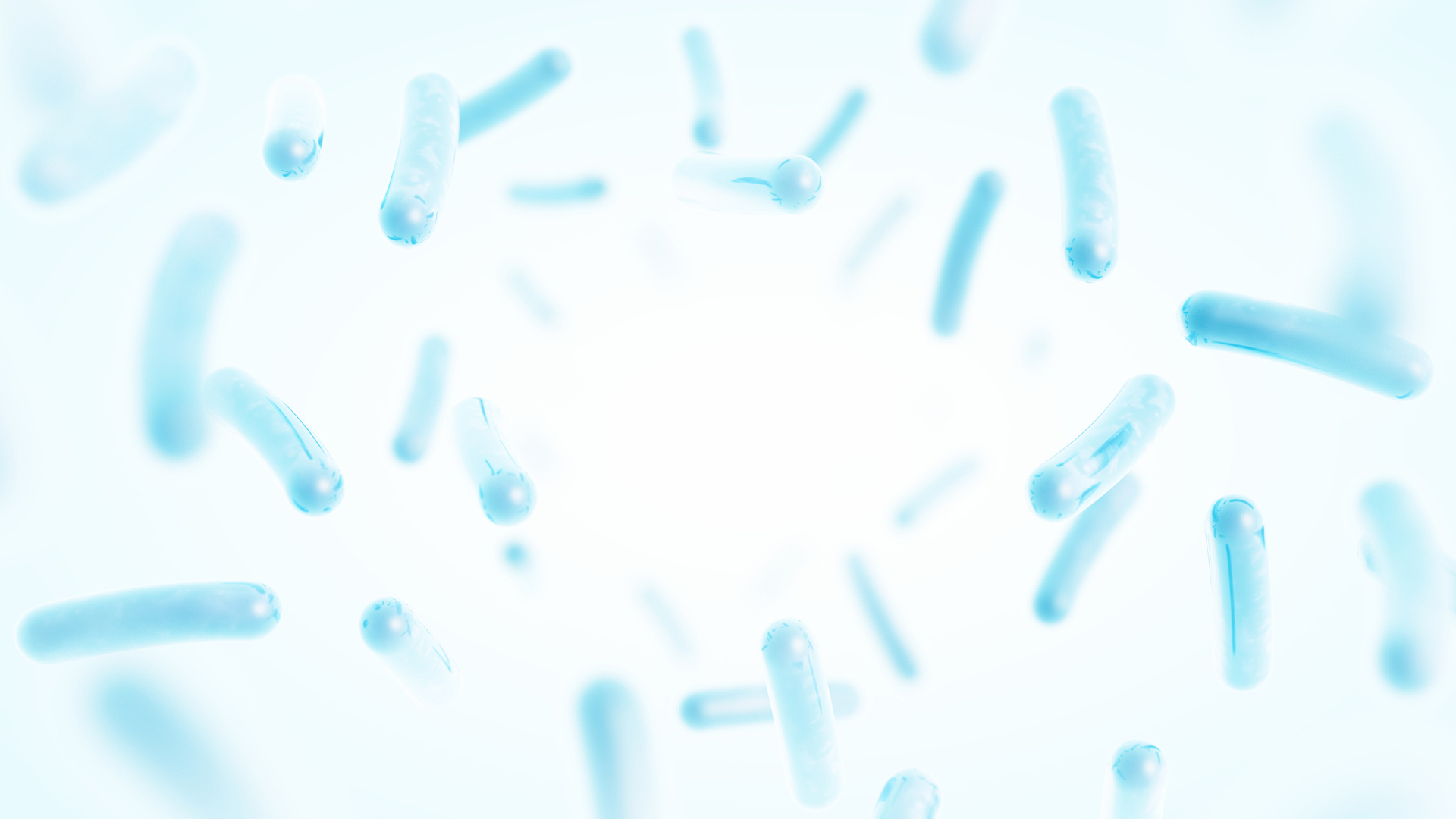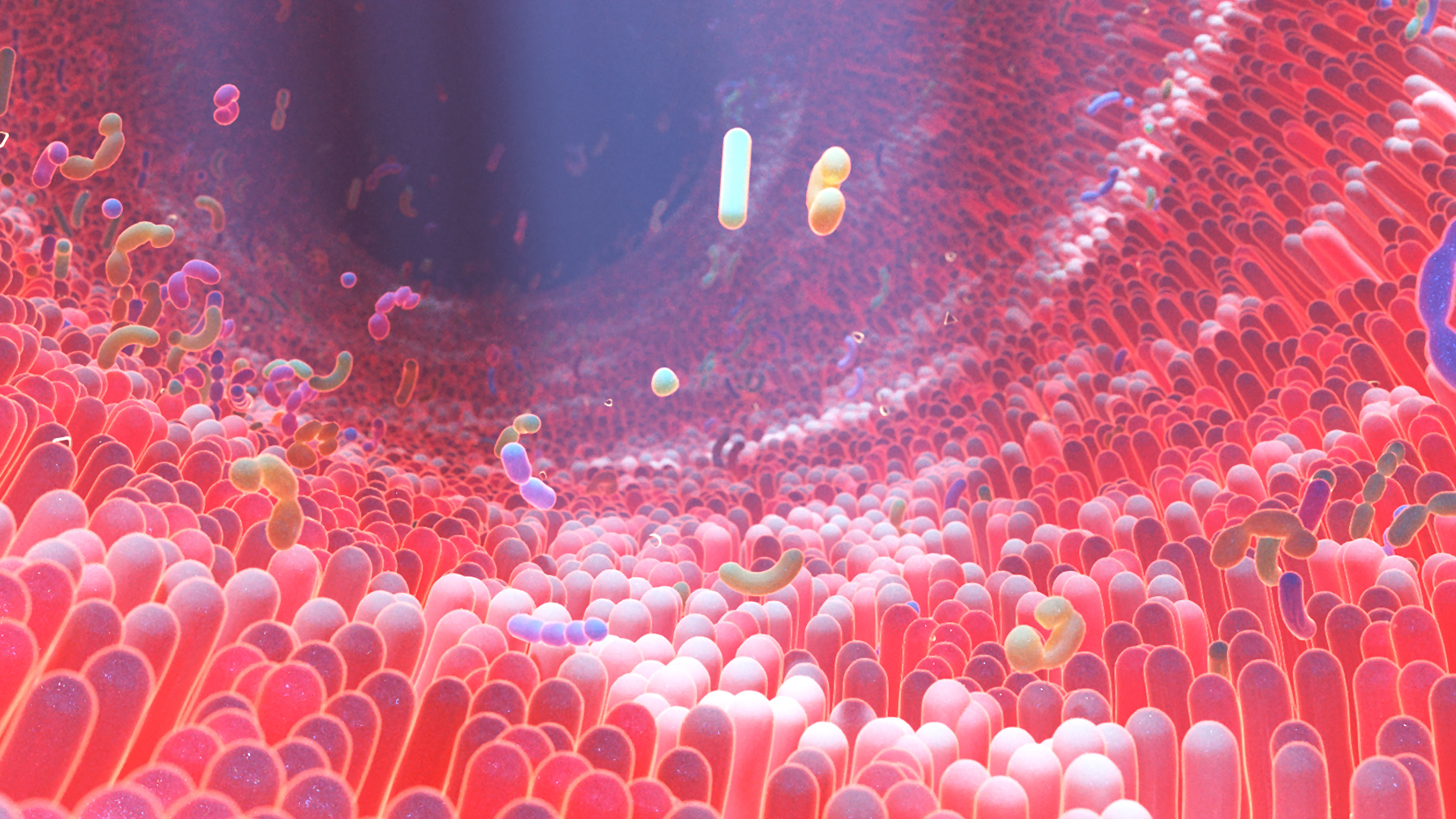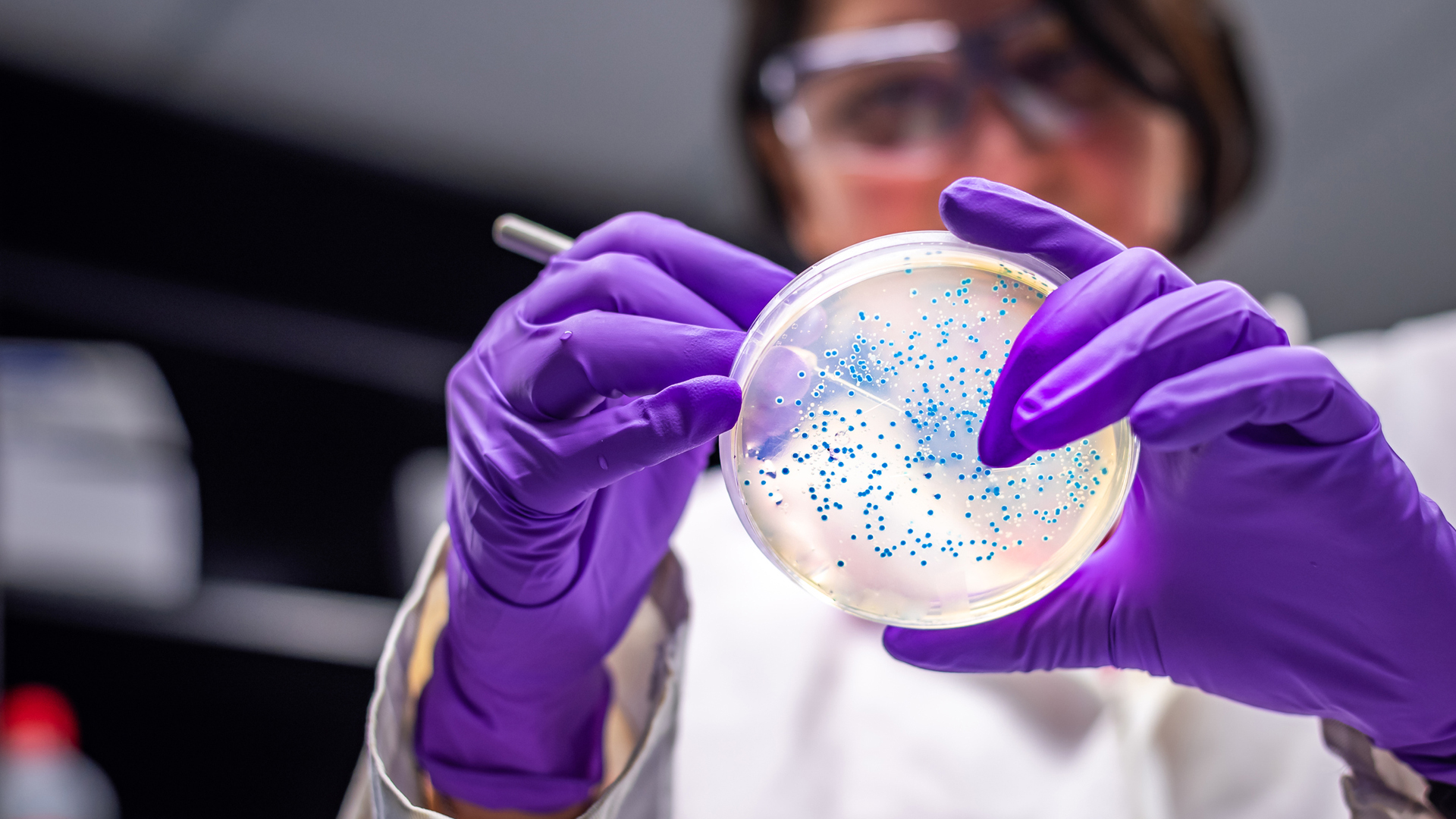What are psychobiotics?
Live bacteria known as psychobiotics could have an impact on our mental state. Here’s what we know so far

Psychobiotics may bring to mind images of a music festival or a Beatles song, but they are not as psychedelic as they sound. Psychobiotics are probiotics and prebiotics that have an impact on our mental state due to their interaction with our gut microbiome. This interaction is known as the gut-brain axis and is a growing area of research in the management of conditions that involve the brain, such as depression, anxiety and dementia.
Digestive conditions like irritable bowel syndrome (IBS) are often found in tandem with mental health conditions, such as depression and anxiety, but what exactly is the link between IBS and anxiety? Plus, would an improvement in gut health lead to a correlating improvement in mental health conditions?
We spoke to the experts to unpack the science behind psychobiotics to see if some of the best probiotics can have psychological benefits too.
What are psychobiotics?
Professor Glenn Gibson, who works in food microbiology at the University of Reading, U.K, explains that psychobiotics is the name given to probiotics that can affect cognitive state. “Probiotics are live microbes with benefits,” he says. “I think prebiotics have also come into the psychobiotic category – these are growth promoters for beneficial microbes.”

Glenn Gibson is Professor of Food Microbiology, Head of Food Microbial Sciences at the University of Reading. He has been researching bacteria in the gut for over 30 years. Together with his colleague Marcel B. Roberfroid, both researchers coined the term prebiotics in their 1995 paper. His current research is dominated by gut microbiome interactions and dietary intervention.
A review in the Journal of Food and Drug Analysis defines psychobiotics as “a group of probiotics that affect central-nervous-system-related functions and behaviors mediated by the gut-brain-axis via immune, humoral, neural and metabolic pathways.” Another review, in the journal of Trends in Neuroscience, also includes prebiotics within the definition of psychobiotics, as these also impact the health of the gut microbiome.
Dr Deborah Lee, a medical doctor and writer for Dr Fox Online Pharmacy, explains that the concept of psychobiotics originated from the observation that mental health and gastrointestinal conditions frequently coexist.
“In recent years, researchers have become aware of the importance of the gut-brain axis: this is the way the gut and the brain communicate with each other,” she says. “They realized that the cognitive and emotional centers of the brain are intimately connected with the gut, such that thoughts and emotions directly affect gut reflexes, the permeability of the intestines, the gut immune responses, and the hormonal signaling within the gut wall. We now know that this relationship is bidirectional – meaning that gut health also affects mental functioning.”

Having worked for many years in the NHS, initially as a GP, and then as Lead Clinician for an integrated Community Sexual Health Service, Dr Deborah Lee now works as a health and medical writer, with an emphasis on women’s health. She is a menopause specialist.
A review in the journal Biological Psychiatry found that psychobiotics show promise in treating IBS, depression and chronic fatigue syndrome, possibly due to the anti-inflammatory properties of psychobiotics, or their ability to reduce hypothalamic-pituitary-adrenal axis activity, which is associated with many mental health conditions.
What does the science say about psychobiotics?
According to Gibson, research into psychobiotics is ongoing. “This is looking at how diet can influence psychobiotics to make neurotransmitters (chemicals like gamma amino-butyric acid – GABA) that are manufactured in the gut but get to the brain via the bloodstream. The vagus nerve is also involved,” he says.
A 2021 review in the journal Progress in Neuro-psychopharmacology & Biological Psychiatry suggests that as the gut microbiome develops alongside the central nervous system, psychobiotics may be helpful in treating the effects of early life stress, which can cause developmental issues. This could help mitigate the impacts of childhood adversity and lead to a healthier adult life.
“Gut bacteria affect the hypothalamo-pituitary axis (HPA axis), reducing the stress response, and hence reducing inflammation,” says Lee.
Chronic stress leads to raised levels of the stress hormone cortisol, which switches off the local immune response and increases intestinal permeability (also known as ‘leaky gut’). However, restoring the gut microbiota to a healthy flora, down-regulates the HPA axis, lowers cortisol production and restores the normal environment.

“The range and diversity of the bacteria that make up the gut microbiome affects the production of cytokines: cell-signaling molecules that summon white blood cells and inflammatory mediators to the gut wall,” adds Lee. “In normal circumstances, the gut wall is protected by an intact epithelium (cell layer), which prevents infecting organisms and other foreign substances from breaching the gut wall and entering the bloodstream. However, certain bacteria produce metabolites that damage host defenses and allow these foreign organisms, and other substances to enter. Research has shown that people with depression have higher levels of inflammatory cytokines, such as interleukin-6 (IL-6), IL-1β, and tumor necrosis factor-α (TNF-α). Higher levels of interleukin-1α and interferon-γ – substances that regulate the immune response – are also more common in those diagnosed with depression.”
A 2021 review in the Nutrients journal indicates that there is a link between abnormalities in the intestinal barrier and depression, with psychobiotics showing potential in helping with immune system processes, proper immune functionality and overall intestinal barrier health.
Lee says that neurotransmitters related to mood are made in the gut. “A range of neurotransmitters are produced in the gut, including dopamine, serotonin, noradrenaline, acetylcholine and GABA,” she says. “Certain bacteria also produce long- and short-chain fatty acids, which can stimulate nerve function.”
The future of psychobiotics
When it comes to psychobiotic research, Gibson says “all sorts of cognitive issues are on the agenda”, ranging from anxiety and depression to dementia. “One project I’m involved with is using MRI scanning images of the brain and gut to look at chemical signaling in response to probiotics,” he says.

A 2021 review in the journal of Modern Trends in Psychiatry indicates that encouraging patients with depression to eat a varied, plant-based diet rich in fermented foods may help, due to the impact such a diet would have on the gut microbiota.
“There is still much to learn about the gut-brain-axis and the future role of psychobiotics,” adds Lee. “The fact that we could potentially prevent or cure many mental health conditions through diet, and perhaps without the need for such heavy reliance on antidepressants, is an exciting prospect. More research needs to be conducted to identify specific strains of bacteria that could benefit specific conditions and their exact mechanism of action. We need to understand how probiotics – and prebiotics – could benefit a range of medical conditions, and affect different parts of the body, including the skin, the mouth and the vagina.”
This article is for informational purposes only and is not meant to offer medical advice.
Sign up for the Live Science daily newsletter now
Get the world’s most fascinating discoveries delivered straight to your inbox.

Lou Mudge is a health writer based in Bath, United Kingdom for Future PLC. She holds an undergraduate degree in creative writing from Bath Spa University, and her work has appeared in Live Science, Tom's Guide, Fit & Well, Coach, T3, and Tech Radar, among others. She regularly writes about health and fitness-related topics such as air quality, gut health, diet and nutrition and the impacts these things have on our lives.
She has worked for the University of Bath on a chemistry research project and produced a short book in collaboration with the department of education at Bath Spa University.










